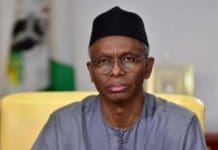The prevailing anger in the country, exacerbated by socioeconomic hardship, has been blamed on the federal government’s failure to establish an effective system for delivering palliatives to most Nigerians. Worse still, inadequate oversight by legislative bodies and other government agencies allows a select few to exploit the situation, undermining the government’s efforts, AZIMAZI MOMOH JIMOH reports.
Despite N4.5 trillion spent on palliatives in the last 12 months by the Federal Government, increasing rate of poverty and hardship among Nigerians has raised concerns about the transparency of the policy.
The Guardian investigation revealed faulty policy implementation, weak monitoring system and poor accountability are responsible for preventing most poor Nigerians from accessing the intended benefits of the noble intervention.
President Tinubu had in July 2023 announced government’s first-set of palliatives, which include N100 billion to acquire 3,000 units of 20-seater CNG-fuelled buses, N200 billion to boost agriculture production, N75 billion for manufacturers, and N125 billion for micro, small and medium-sized enterprises, and the informal sector.
Additional palliative measures involved releasing of N5 billion to each of the 36 states, as well as N315 billion meant to pay every federal worker N35,000 for six month; payment of N75,000 to 15 million households at N25,000 per month for three months (October and December 2023), totalling N1.13 trillion for the period; the controversial N70 billion palliative earmarked to lawmakers to support “the working conditions of National Assembly members”, and the recent N1 trillion palliatives of the Federal Government to Nigerians.
However, during the same period of distributing these palliatives, poverty worsened in the country as the headline inflation rate increased to 33.95 per cent from the 22.41 per cent in May 2023.
Data from the National Bureau of Statistics (NBS) showed that on a year-on-year basis, the headline inflation rate was 11.54 per cent points higher compared to the rate recorded in May 2023, which was 22.41 per cent.
Worse still, the country’s debt increased substantially as the Debt Management Office (DMO) put Nigeria’s total public debt at N121.67 trillion within three months.
This figure represents an increase of N24.33 trillion or 24.99 per cent from the N97.34 trillion as of December 2023. In an interview with The Guardian, former National publicity Secretary of the Peoples Democratic Party (PDP), Kola Ologbodiyan, said the failure of the N4.5 trillion palliatives initiated by the Bola Ahmed Tinubu administration since last year, as well as the ones initiated by the preceding administration of Muhammadu Buhari, failed because of misplacement of priorities.
He said: “Starting from the Trader’s Money Scheme of the Buhari’s administration, palliative programme has become a euphemism for looting. As such, it has failed to address the nation’s economic challenges. Nigerians are not lazy, and they will always work hard to earn a living, no matter the conditions and environment. Therefore, the government at all levels should create an enabling atmosphere that would allow Nigerians to thrive in their vocations.”
Ologbodiyan continued: “Most importantly, the government should confront the challenges of insecurity, power generation and distribution headlong. Until and unless we attain success in these areas, distribution of funds in terms of palliative will not take us out of the current excruciating pains.”
Bayelsa State Governor Douye Diri, had recently condemned the practice of depending on palliatives as solutions to people’s economic hardship. He said: “Offering of palliatives was not the lasting solution to the economic hardship in the country.”
He said though he was not against palliatives, he was more concerned with putting in place the right structures and systems to address economic challenges.
Speaking to The Guardian, member of House of Representatives (2011- 2023) and former chairman of the committee on privatisation, Tajudeen Yusuf, who reviewed the issues emerging from the management of the country’s political economy in the last one year, submitted that governance has been characterised by lack of coordination, confusion, and planning.
Yusuf said: “There is one major policy somersault; it is a good thing to do, but was not properly articulated and managed, it is subsidy removal. The mistake took away whatever gain they would have gotten.
“I’m not opposed to the removal of subsidies on petroleum products, I’m an economist. But there are processes for removal of subsidies on fuel. The president ought to have known that there’s no country in the world that doesn’t subsidise at least a particular sector. So, as he was planning to remove subsidies on petroleum products, he should have considered putting subsidies on either education, health or even electricity,” he stressed.
The former Reps member also expressed concerns about the decline in the quality of representation in the National Assembly, a development Yusuf noted has affected the value of governance to the people of Nigeria.






